At 9:00 a.m., putting down the nets on the boat, Mr. Nguyen Van Sang (Vinh Thanh commune, Tan Hung district, Long An province) urged me: "Hurry up, a little bit of strong sunlight will burn your skin now."
City people are afraid of black things, but farmers like us are not afraid anymore!". He laughed heartily, and I fumbled to get off the boat.
At the end of the seventh lunar month, the water level was at the source. In his free time, Sang ran his boat to the field to spread a few nets and catch some fish to eat.
In recent years, there has been little water, so there are fewer fish and shrimp. People who go fishing like Mr. Sang do not have as much to eat as in previous years, but they are used to it. When the water comes back, people in the flooded areas prepare traps, traps, and a few nets to fish. If they don't have much, they have enough for a meal.
The boat glided smoothly on the Central Canal for about 5 minutes, reaching the intersection, Mr. Sang turned left, passed the opened sluice gate to enter the inner fields of Ca Bat hamlet, and began the fishing session.
According to Mr. Sang, this is a low-lying area with a lot of water so it is possible to spread nets, but in other places the water is not above the knee so it is not possible to spread nets, and even if you did, there would be no fish.
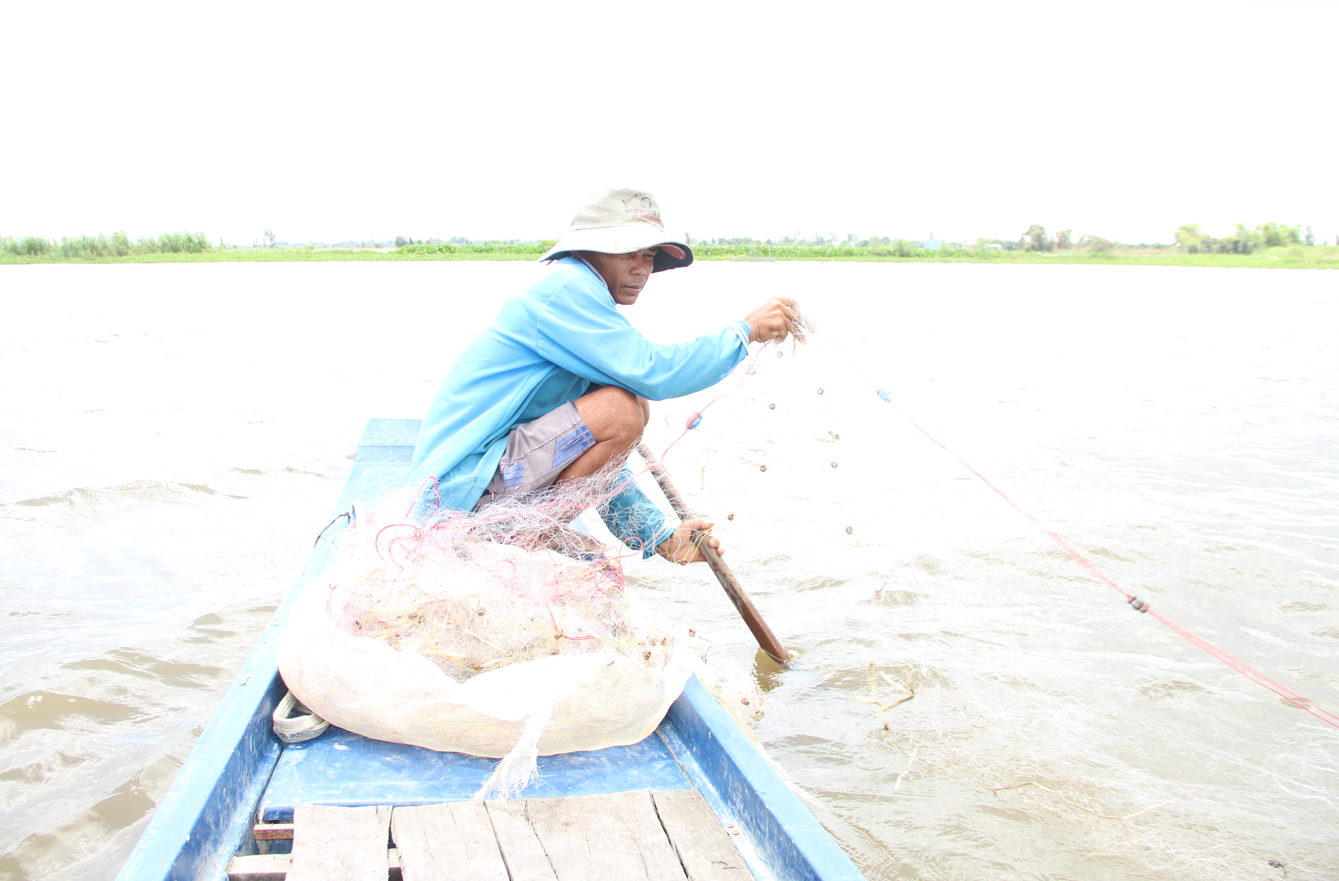
Mr. Nguyen Van Sang sets up a net to catch fish in the fields during the flood season in Ca Bat Hamlet, Vinh Thanh Commune, Tan Hung District, Long An Province.
When he reached the netting point, Sang opened the prepared net and threw one end of the net, which was tied tightly to a small bottle, into the water. He opened the net with his hands and kicked the water with his feet to move the boat. I just sat still on the swaying boat.
While casting his net, Mr. Sang said that he is a Vietnamese expatriate in Cambodia. He lived in the neighboring country since he was a child. In 2000, he returned to An Giang to get married and then moved to live in Vinh Thanh commune, Tan Hung district (Long An province) for nearly 20 years now.
In the dry season, he uses a combine harvester to carry heavy loads, and in the wet season, he returns home to set nets and cut water hyacinth to sell to earn extra income to support his life. Having lived in the river area for nearly 20 years, he still has no land to produce crops, and the house where his family lives is also temporarily owned by the State.
Nearly 20 years in Vinh Thanh is also the same amount of years that Sang has been "fated" by the net-setting profession. In this area, the flood season usually starts at the end of July and ends at the end of October of the lunar calendar. At this time, the water rises, fish and shrimp return in abundance.
Before 2010, net fishing was considered a "money-making" job. There were days when Mr. Sang could catch a few dozen kilograms of fish. During each flood season, he could earn about 60-80 million VND. In recent years, there has been little water, so there are not as many fish and shrimp as before, so there were days when he could catch a few kilograms of fish from the previous night until noon the next day, just enough to eat, not enough to sell.
After spreading two nets (each about 60m long), Sang decided to go back to check his net. Occasionally, a few sampans and motorboats passed by and asked: "Are there any fish?", Sang said: "Probably enough for lunch!".
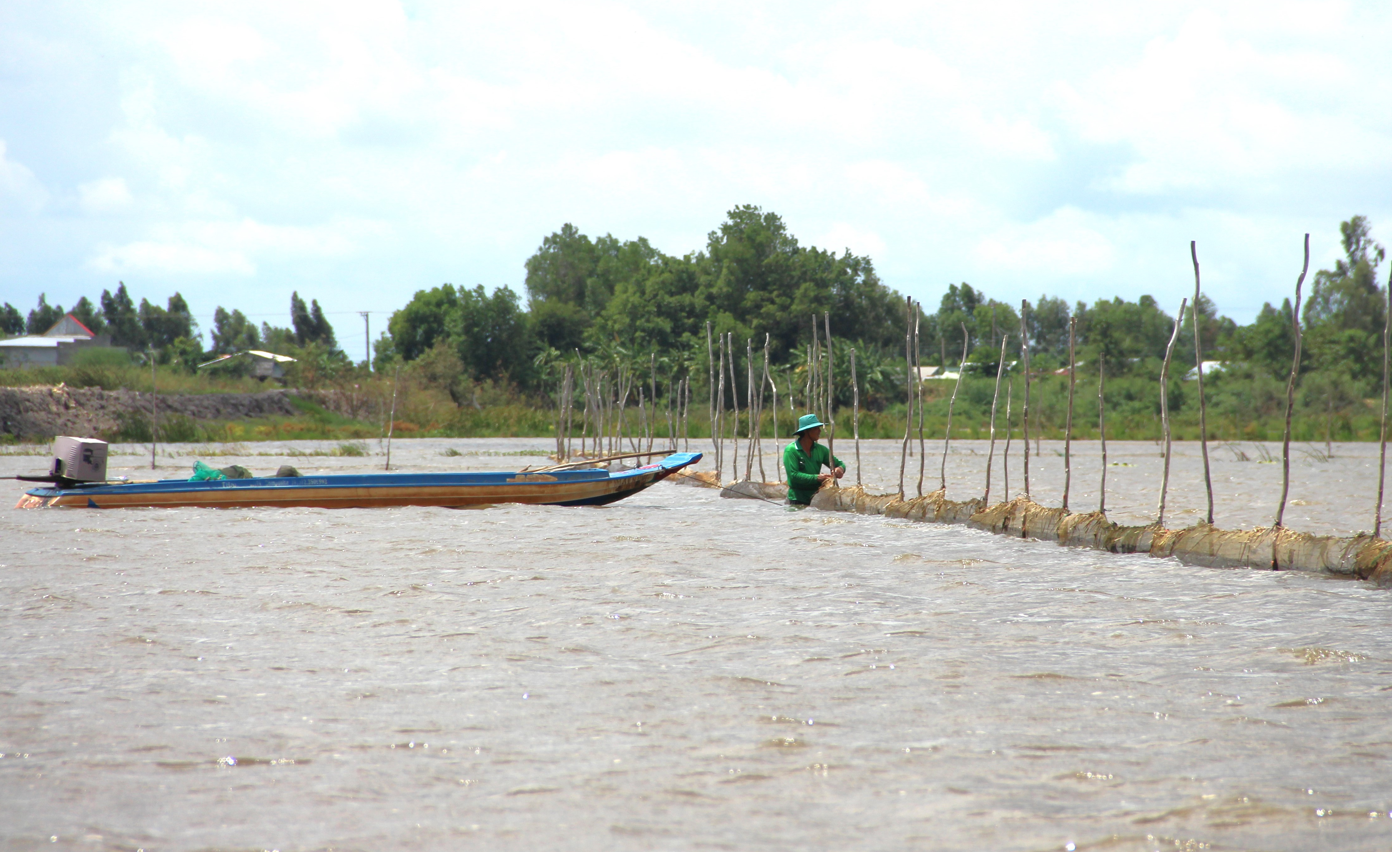
Many people in the flood season fields of Long An have also started setting traps and nets to catch fish during the flood season.
A few linh fish, climbing perch, silver carp,... as big as 2-3 fingers were caught in the net. Mr. Sang slowly removed the meshes of the net: "When encountering climbing perch caught in the net, you have to remove them slowly.
The tilapia has many fins, so if you pull it out hard, the net will easily tear and scratch your hands. Here, many professional netters have hands covered with scratches.
Nearly 30 minutes later, Mr. Sang finished checking the two nets and caught more than 2kg of fish (linh fish, perch, striped snakehead fish...) and field crabs.
He said the ideal time to cast nets for freshwater fish is early morning or late afternoon. People here usually cast nets from 4 to 7 am to check the nets or from 3 to 5 pm. At this time, it is almost noon so there are not many freshwater fish.
Turning the boat to take me back, Mr. Sang looked back at the flooded fields as if choosing a place to return in the afternoon to cast nets. Mr. Sang said: “The profession of casting nets, setting traps,... mainly depends on the flood season, but in recent years there has been so little water, there are no fish or shrimp, I don’t know if this profession will still exist in a few years. Well, wherever the water brings alluvium and natural products, the people are happy!”
Saying goodbye to Mr. Sang and leaving the first flood season, I brought with me many worries and memories of the people who work as fish net fishermen about a beautiful flood season that has passed.
Source: https://danviet.vn/mua-nuoc-noi-long-an-ra-ruong-menh-mong-xem-nong-dan-bat-ca-dong-co-ca-linh-ca-ro-ca-sac-ran-20240914235057261.htm


![[Photo] Party and State leaders attend the special art program "You are Ho Chi Minh"](https://vphoto.vietnam.vn/thumb/1200x675/vietnam/resource/IMAGE/2025/5/18/6895913f94fd4c51aa4564ab14c3f250)
![[Photo] Many young people patiently lined up under the hot sun to receive a special supplement from Nhan Dan Newspaper.](https://vphoto.vietnam.vn/thumb/1200x675/vietnam/resource/IMAGE/2025/5/18/6f19d322f9364f0ebb6fbfe9377842d3)


![[Photo] Ready for the top competitions of Vietnamese table tennis](https://vphoto.vietnam.vn/thumb/1200x675/vietnam/resource/IMAGE/2025/5/18/9c547c497c5a4ade8f98c8e7d44f5a41)

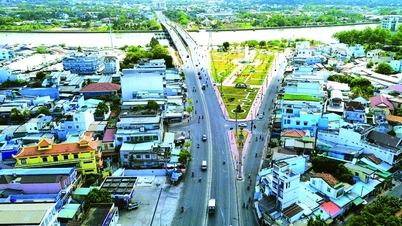










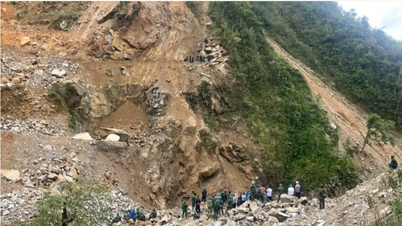

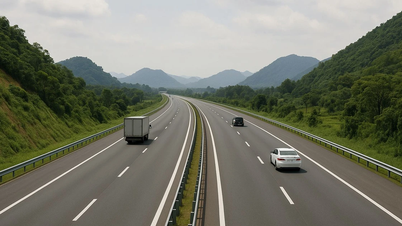

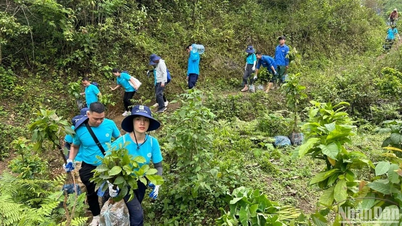








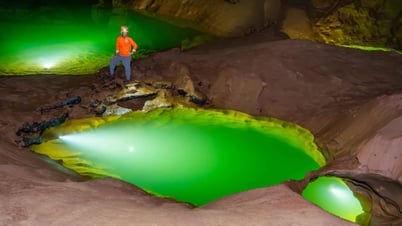





















































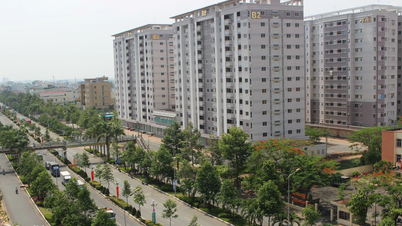

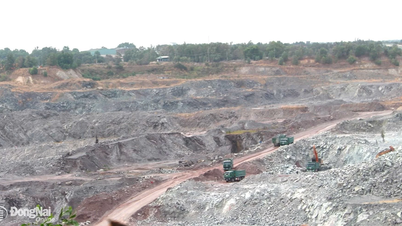











Comment (0)